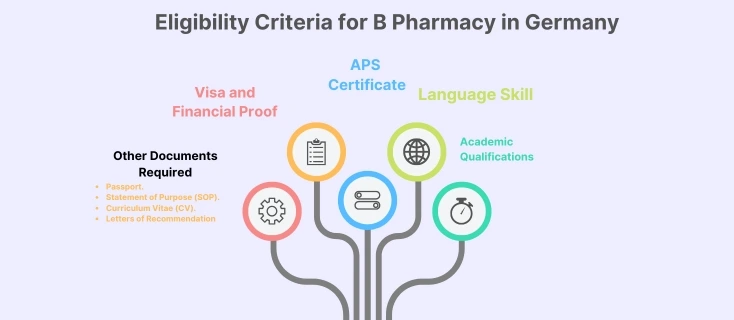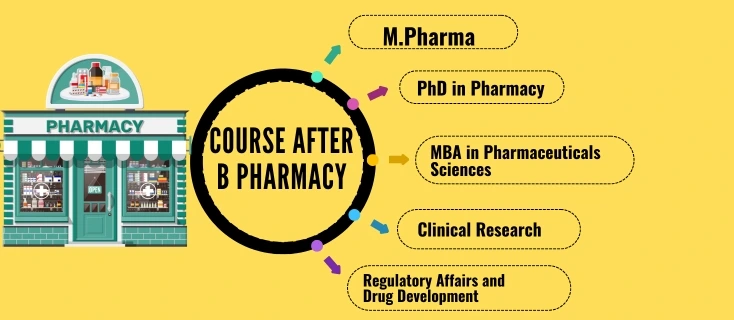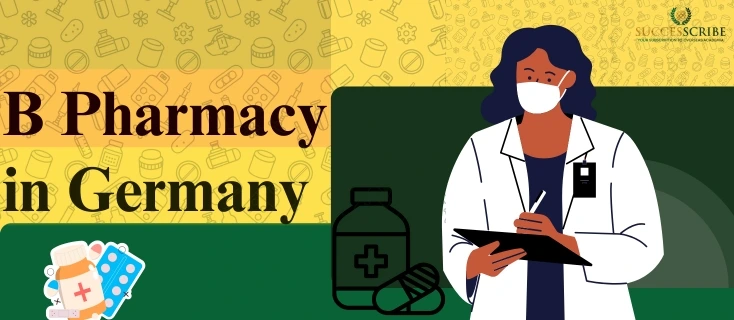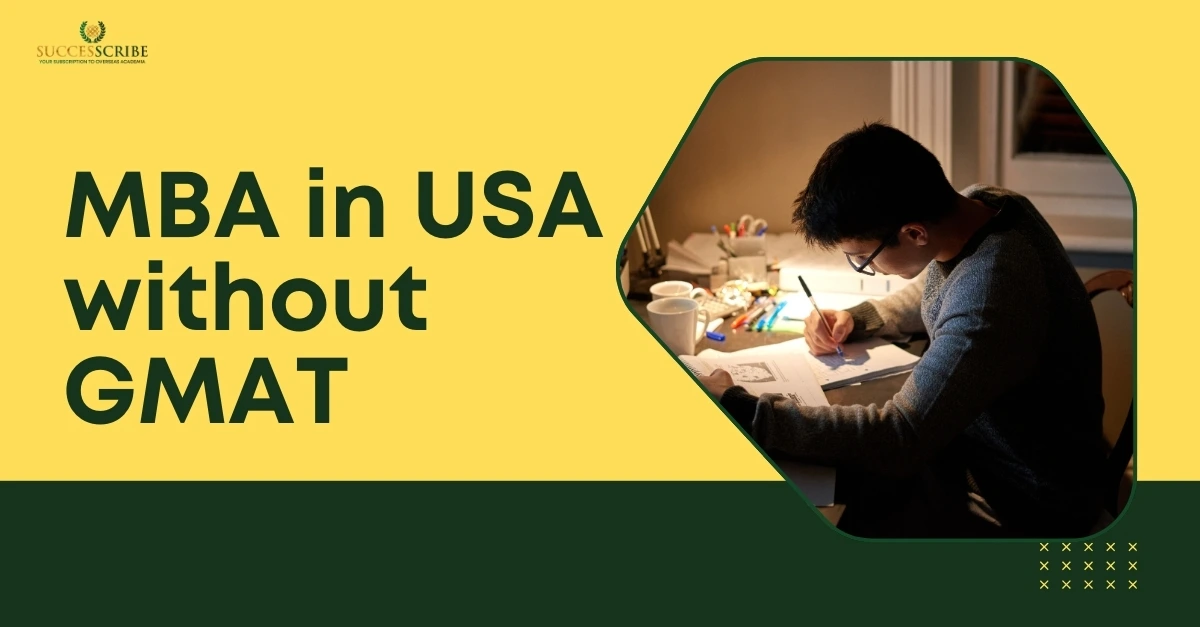A B Pharmacy in Germany is quite an all-embracing academic program emphasizing drug development, pharmaceutical sciences, chemistry, and biochemistry with many such subjects. Studying pharmacy in Germany offers not only top-tier education but also exposure to cutting-edge pharmaceutical research and innovation.
This topic offers all the information an international student would need if they wanted to pursue a B Pharmacy in Germany, including program details, admission requirements, costs, top universities, career prospects, and more.
Best Universities for B Pharmacy in Germany
Many German universities offer a quality B. Pharmacy program. Here are some of the best universities for international students:
| University Name | Tuition Fees (EUR) | Intake Period |
| Heidelberg University | 150 – 200 (Semester Contribution) | Winter and Summer |
| University of Frieburg | 3,673 annually | Winter Semester |
| University of Kiel | 250 (Semester Contribution) | Winter and Summer |
| University of Göttingen | 350 per semester | Winter Semester |
| Ludwig Maximilian University (LMU) | 150 per semester | Winter Semester |
| Hannover Medical School | 300 per semester | Winter Semester |
| Johannes Gutenberg University | 330 per semester | Winter Semester |
| Darmstadt University of Technology | 250 per semester | Winter Semester |
| University of Marburg (Philipps-Universität) | 275 per semester | Winter Semester |
| University of Hamburg | 330 per semester | Winter and Summer |
| University of Würzburg | 150 – 200 per semester | Winter Semester |
Structure of B Pharmacy program in Germany
The B. Pharmacy in Germany usually takes three to four years, depending on the university and the structure of the program. It includes a combination of theoretical courses, practical training, internships, and research projects. Below is a breakdown of the typical structure.
- Duration: 3 – 4 years
The B. Pharmacy course is generally spread over 6 to 8 semesters. It would cover all the courses from pharmacology, chemistry, biology, and health sciences.
- Practical Training: Most courses require compulsory practical training or internship. This could be done in a hospital pharmacy, community pharmacy, or a pharmaceutical company.
Core Subjects
The core subjects in a B Pharmacy in Germany are usually the same in all universities, but the focus is on foundational scientific and pharmaceutical knowledge. The curriculum consists of the following subjects:
| Semester | Subjects Covered |
| 1st Year | General Chemistry, Organic Chemistry |
| Biochemistry, Human Anatomy | |
| Introduction to Pharmaceutical Sciences | |
| Pharmaceutical Biology, Microbiology | |
| 2nd Year | Pharmacology, Medicinal Chemistry |
| Pharmaceutical Technology and Drug Development | |
| Pharmaceutical Law and Ethics | |
| 3rd Year | Clinical Pharmacy, Pharmaceutical Analysis |
| Drug Regulatory Affairs, Quality Control | |
| Pharmacokinetics and Drug Dosage Forms | |
| 4th Year | Pharmaceutical Industry and Management |
| Internship or Research Project |
Practical Training & Internships
Practical experience forms an integral part of the B. Pharmacy curriculum. Undergraduate students often spend some time performing internships or practical training in the following:
- Hospital Pharmacy
- Community Pharmacy
- Pharmaceutical Industry
Eligibility Criteria for B Pharmacy in Germany

International students who wish to pursue B. Pharmacy in Germany must meet specific academic, language, and procedural eligibility criteria. Here’s the detailed breakdown:
1. Academic Qualifications
High School Diploma/Equivalent:
Students must have completed their secondary education equivalent to the German “Abitur.” Indian students should have:
- Completed Class 12 with a science background.
- Studied subjects like Physics, Chemistry, Biology, and Mathematics.
- A strong academic record with at least 65% aggregate or above.
Acknowledgment of Qualifications:
In case your high school diploma does not qualify for acceptance into the German academic world as the Abitur, then you can join a Studienkolleg (Foundation Course), pass the Feststellungsprüfung and subsequently enter.
2. Language Skill
German language skills:
Most pharmacy degrees are done in the German language. Student applicants need to possess the following proof:
- TestDaF (level 4 in all sub-classes)
- DSH-2
- Goethe C1/C2
English Language Proficiency:
Some universities may offer pharmacy courses in English. For these, you’ll need:
- IELTS (6.5 or above)
- TOEFL iBT (Minimum score of 90)
3. APS Certificate
The Academic Evaluation Center (APS) certificate is a mandatory requirement for Indian students applying to B Pharmacy in Germany. The APS verifies:
- Authenticity of academic documents.
- Eligibility for admission to German universities.
How to Obtain APS?
- Submit your academic transcripts (Class 10, Class 12, and other relevant certificates).
- Pay a processing fee of about 50 EUR (₹4,500).
- An interview will be scheduled, if needed.
APS certificate is mandatory to get a student visa, which will guarantee smooth processing for your student visa to the universities in Germany.
4. Entrance Exams (If Necessary)
Some colleges ask students to take an entrance exam as a criterion for the assessment of their subject knowledge. Major points include:
- TestAS: This is a general aptitude test, designed for international students.
- University-Specific Tests: Some universities conduct their own tests in Chemistry or Biology, etc.
5. Visa and Financial Proof
Student Visa:
International students have to apply for a German student visa. You should be having the following:
- Admission letter from any German university.
- Proof of financial resources, such as blocked account with €11,208 per year (₹10,40,000).
Health Insurance:
Compulsory health insurance for international students in Germany, costing around €110–€120 per month.
6. Other Documents Required
- Passport.
- Statement of Purpose (SOP).
- Curriculum Vitae (CV).
- Letters of Recommendation (if needed).
By fulfilling these eligibility criteria and going through the APS certification process, students can make their application process easier and get more chances of getting admitted to one of the top universities in Germany for B Pharmacy.
Course After B Pharmacy

Immediately after achieving the degree of B. Pharmacy, graduates can continue their postgraduation in advanced courses offered across several areas of pharmacy and health care. Here are a few common courses and options following the completion of B Pharmacy in Germany:
- M.Pharma
- PhD in Pharmacy
- MBA in Pharmaceuticals Sciences
- Clinical Research
- Regulatory Affairs and Drug Development
Tuition Fees for B Pharmacy in Germany
Germany is highly acknowledged for its low-cost and accessible higher education system. For international students, the cost of education for a B. Pharmacy degree is one of the most attractive aspects of studying in Germany.
| Type of University | Tuition Fee (per semester) |
| Public Universities | €150 to €300 (semester fee) |
| Private Universities | €5,000 to €15,000 |
Cost of Living
Although the tuition fees are relatively low, the cost of living in Germany should be taken into consideration. On average, international students in Germany spend between €700 and €1,000 per month on accommodation, food, transportation, and other living expenses.
| Expense Category | Estimate Monthly Cost |
| Accommodation | €300 to €600 |
| Food and Groceries | €150 to €250 |
| Transport (Student Ticket) | €50 to €100 |
| Health Insurance | €100 to €120 |
| For Leisure Activity | €100 to €200 |
Conclusion
Germany is one of the best places through which international students can get some of the best quality at relatively affordable rates. Such a place has top institutions, low tuition fees, and a robust pharmaceutical industry- an ideal choice for students opting for a career in pharmacy. Universities offering B Pharmacy in Germany often collaborate with leading pharmaceutical companies, providing students with real-world experience.
Is German language proficiency required for B. Pharmacy in Germany?
Yes, almost all B. Pharmacy courses in Germany are conducted in German. Proficiency in the German language at least C1 level is usually demanded. However, a few universities may offer English-language courses, but this is very rare.
What are the academic eligibility criteria for B. Pharmacy in Germany for Indian students?
Indian students must have:
Academic: Finished XII with science subjects in Physics, Chemistry, Biology, and Math.
At least 65% marks or its equivalent.
Additional requirements could involve attending a Studienkolleg and passing the Feststellungsprüfung. if the 12th graduation qualification is not accepted as valid.
What is the APS Certificate Role in the Selection Process ?
The APS is compulsory for Indian students to issue the certificate. It tests and verifies the authenticity of your academic documents and validates the eligibility for admission at any German university. Besides that, it is essential for applying for a student visa in Germany.
What is the cost incurred in studying B. Pharmacy in Germany?
There is no tuition in public universities, but they collect semester contributions ranging between €200–€400. There is tuition from private universities that range between €5,000–€15,000 per year.
Are there scholarship programs that are offered for international students?
Yes, scholarships offered to international students for studying B. Pharmacy in Germany include the DAAD Scholarships, Erasmus+, and institutional funding offered by each respective university.
Related Post
Highest paying jobs in Germany
German student visa checklist
German language scope in India
Highest paying companies in Germany















